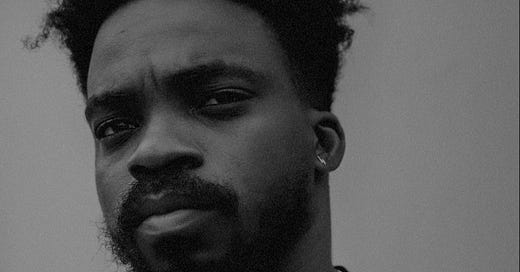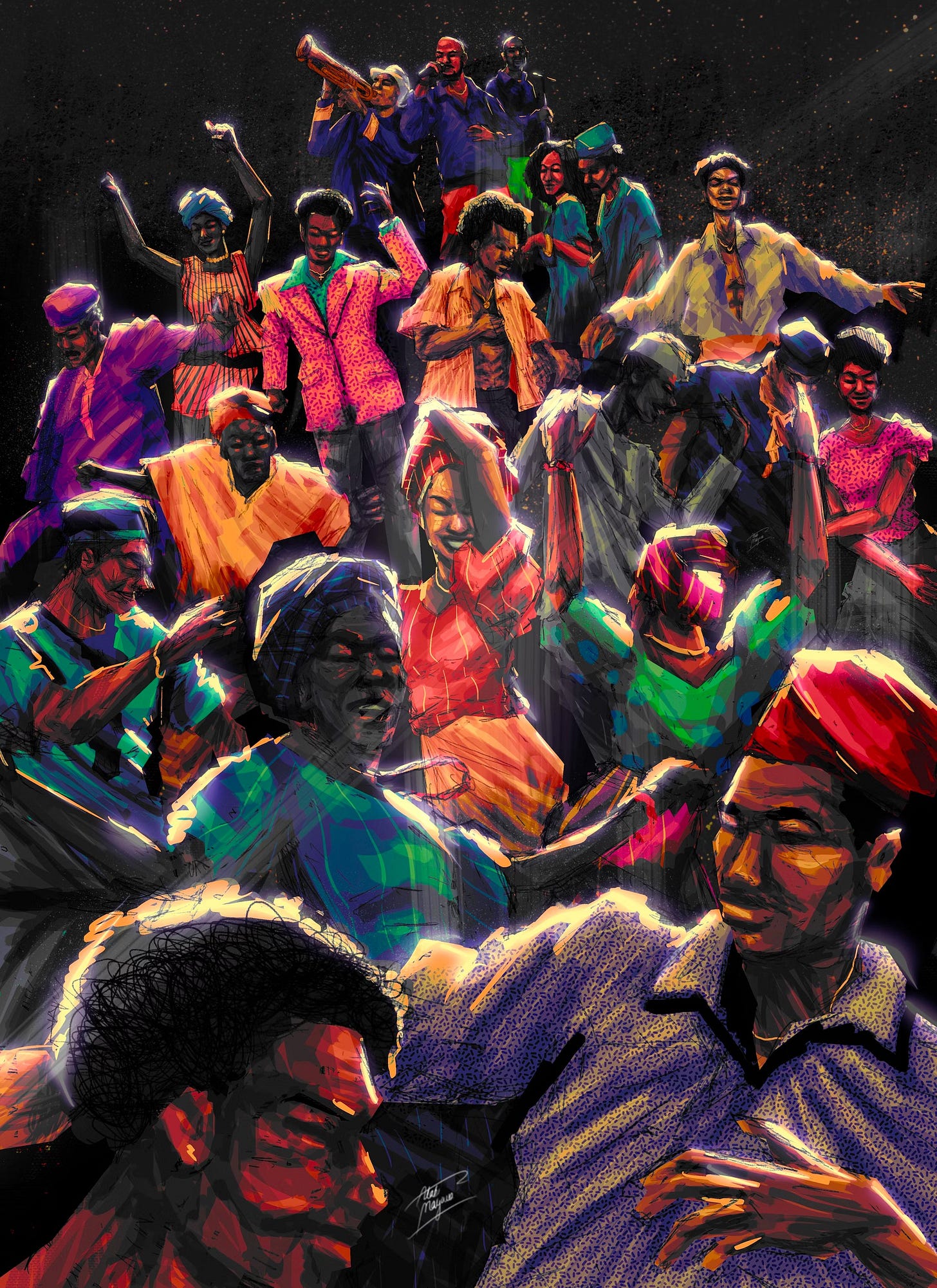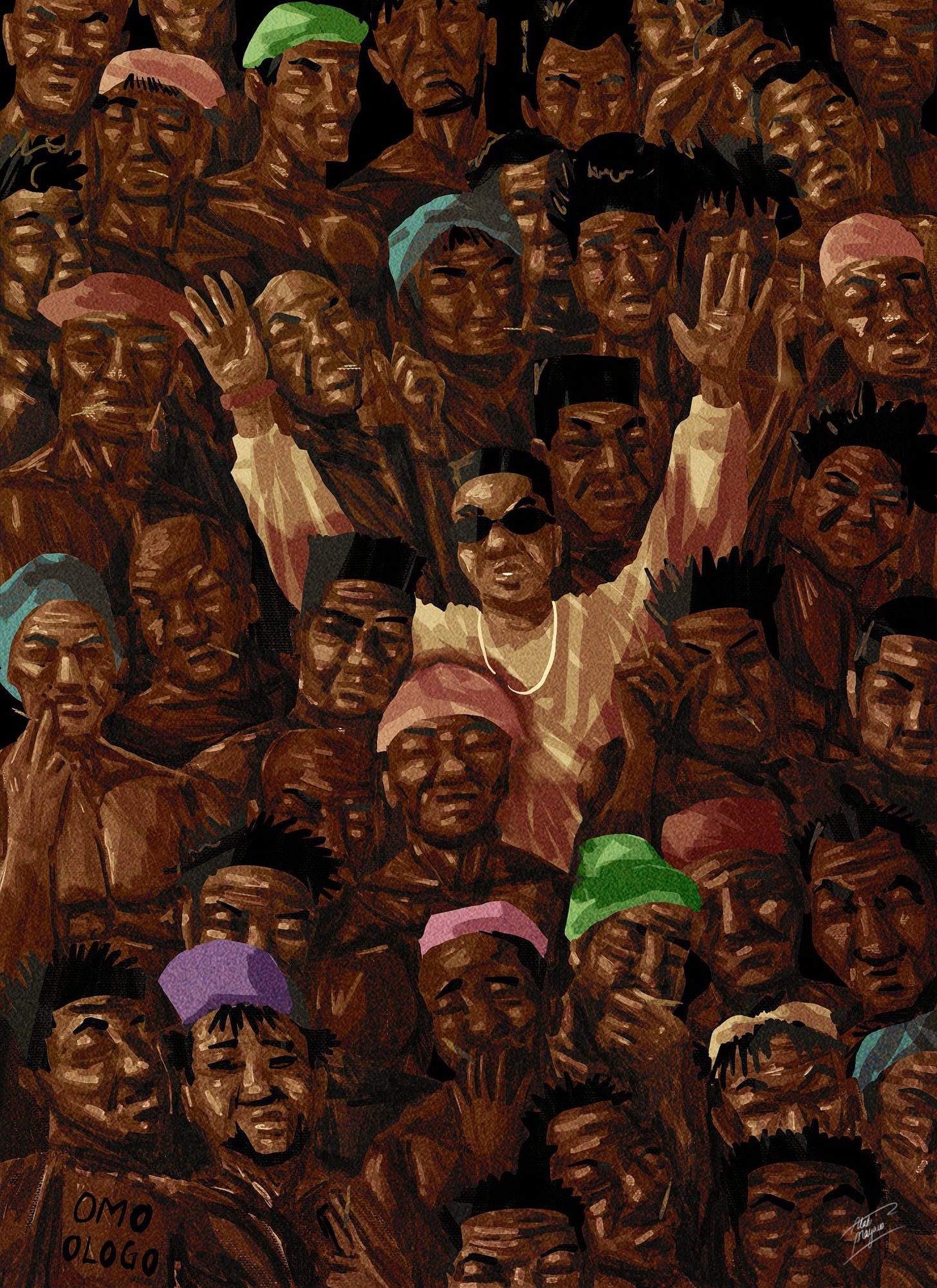A special welcome to all my new subscribers! It was great to hear from you about last week’s essay on Zimbabwean names. This week is the second in our Creatives You Should Know series.
This edition features the Nigerian visual artist Mayowa Alabi, also known as Shutabug. Based in Lagos, his distinct style draws influence from the energy, creativity and complexity of the city. Mayowa is a self-taught master of mediums. He is a painter, photographer, animator, graphic designer and illustrator.
I first met Mayowa in 2020 when he designed my favourite book cover of all time!
Mayowa did all the illustrations for Africana. Since then, I have followed his career with interest as he expands his impressive creative footprint beyond Lagos. His first solo exhibition in London is currently at the Afrique Room in Shoreditch.
Kim: If you were telling the story of Mayowa, the artist, where does that story start?
MA: It starts at primary School. I am an only child, and as a kid, during the holidays, my parents would sometimes leave me with a neighbour when they had to go out. He happened to be my best friend at the time. He really liked watching action movies. The first time I saw Rambo was at his house. After every movie, he would become so hyped, and he would try to recreate exactly what he had just seen. He’d start drawing the action scenes. I was very interested in what he was doing, and I would try to copy him as well, drawing things from my perspective. That's the core memory I have of when I first put pen to paper. And then, from there, I continued to improve. It became my thing.
What would you say was the accelerant - the project or the piece of work that you did that got you noticed and helped elevate your career?
The one thing that pushed me was this UN competition in 2017 (European Union/United Nations Women Gender Equality Picture It Comic & Cartoon Competition). The year before, I had acquired a Wacom tablet to try to teach myself how to create digital paintings, but I gave up after about a month. In 2017, I picked it up again and started producing paintings, submitting one for the competition. I made the shortlist and went down to Abuja. I remember feeling weird when they began announcing the winners. They started with the second runner-up, and then it was down to two people; then they called my name. I was over the moon! After the competition, I decided to use about 80% of my winnings to have an exhibition. I felt really confident. I wanted to put myself out there and announce myself to Lagos and the world.
How would you describe your visual language?
Chaotic, just like Lagos. I have many styles and many ways of interpreting things. In Lagos, there is no one way to do things. It's a very fast-paced city, so I'm always searching for different ways to approach things - to paint, to tell a story in a way that people will understand. There's a word that’s popular in Lagos, ‘gbas gbos’, which essentially means chaos. When I speak to Nigerians, that’s how I describe my style. It's everywhere, anywhere and nowhere at the same time. It's what you see in that very moment.
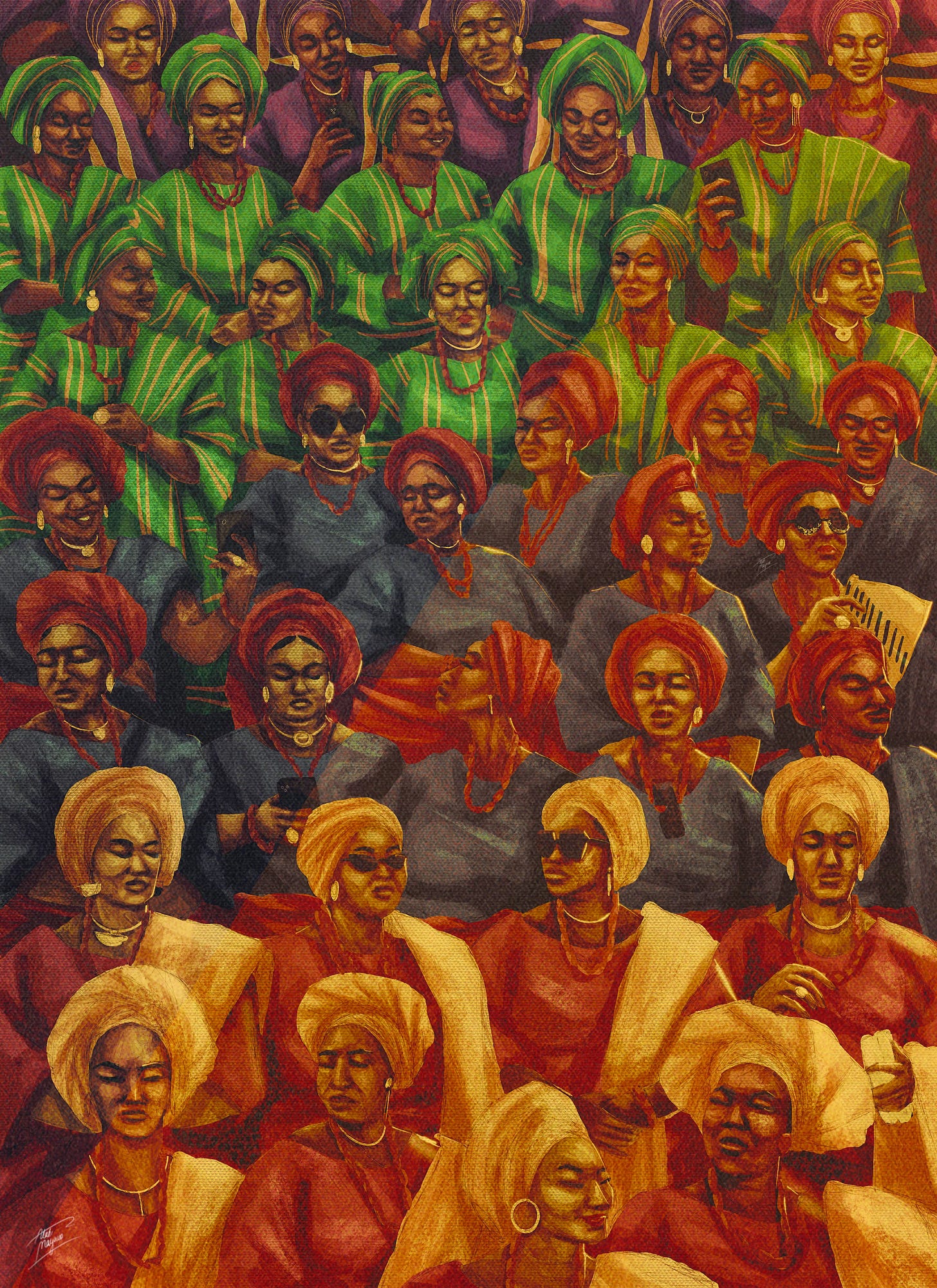
What's your relationship to social media as an artist? How important is it?
I hate to say this, but it's very important. I know it's different for everyone. Every big opportunity I've had is based on the work that people have seen on my social media pages or work that has been credited to me. I'm still in the process of learning how to balance it properly, because as an artist, it's easy to fall into the trap of creating for the audience or the algorithm. I realised I had an impulsive need to share immediately after I created something. I needed that social media validation. I had to tame myself. I started taking a social media break for between one and six months. It's really good for me as an artist. [Social media] is a blessing, but there has to be a balance.
What are the challenges that come with trying to make it as an artist in Lagos?
It’s very limiting. Lagos lacks a lot of essential infrastructure and support services. Since last year, I've been trying to branch out and make physical art and merchandise. I’m unable to produce high-quality shirts here. They have to be made outside of Lagos. Things like payment are difficult. Nigerians don't have access to PayPal. This means I have to reach out to my friends outside of Nigeria to help with payments, to get the simplest things done. Still, I wouldn't trade the experience for anything else, because I feel it has shaped me into the artist I am today.
How has it shaped you?
The creativity is endless. If I hadn't stayed in Lagos for as long as I have, I probably wouldn't be the artist I am. Lagos is a very chaotic place, but there is a lot of creativity that stems from that madness. There are a lot of things you see just by digesting different elements of the city - how things happen, the fights, all the arguments people get into. When I sit down to create, I don't have to spend a lot of time thinking about these stories; they are, more or less, core memories. I can bring them out now and then and put them on paper.
You mentioned that since last year, you have been creating more physical art and producing more merchandise – what’s behind this shift?
I have an innate need to expand. I know from experience that I prefer to feel and touch things. When you can hold a product in your hands, there's a different level of emotion that goes into it. There’s a difference between seeing the Mona Lisa on my phone and seeing it in person. Since I started my career, I've had people ask about putting my paintings on T-shirts. I've always turned it down due to quality issues. Now I have the connections. I can reach out to people in China, for example, and explain the way I want things to be done.
What does success mean to you?
When I began my career, financial success was my primary goal. I really wanted to make enough to be comfortable. Initially, it was about numbers - making the next two million or three million, that was the goal. I realised that once you make your first million, it’s just chasing the next number. It's just never-ending, and it's not a place to be, especially as an artist, because you keep looking for the numbers. I think my goal is self-satisfaction for now, just being happy with what I put out.
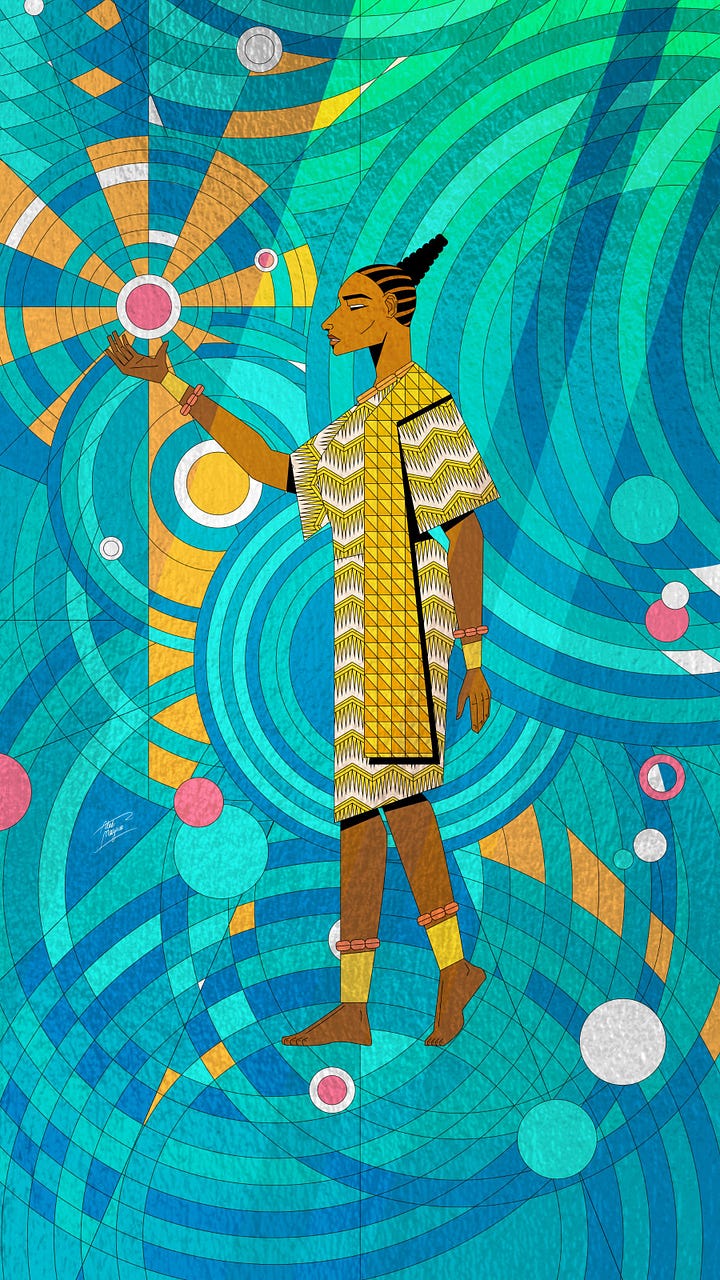
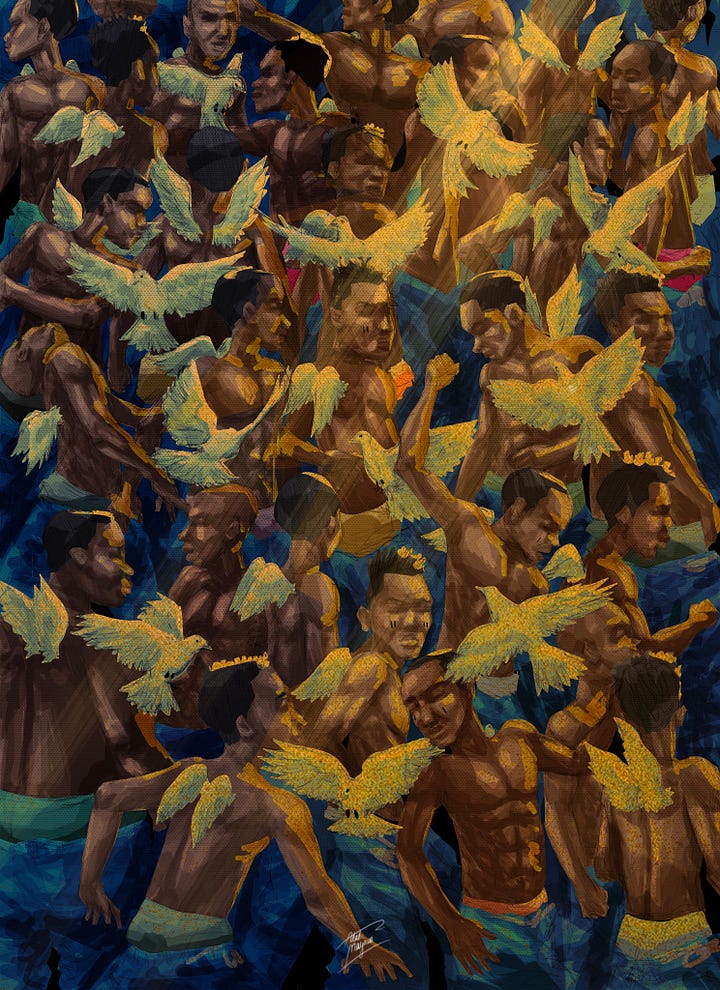
More on Mayowa here
CREATIVES MAYOWA THINKS YOU SHOULD KNOW
My week in culture
I watched Memories of Love Returned at the New York African Film Festival. It's a fascinating documentary. An interview with Ntare Guma Mbaho Mwine, the director, is in the works.
Thanks for reading! Please spread the word about Africa Unbound, a free weekly arts and culture newsletter!


